India since its Independence until the 1970s has played a central role in mobilising third world countries on the issue of Self-determination and racial equality. Amit, our Editor-at-Large (Europe) critically analyses India’s diplomatic move employing ‘human rights’ in United Nations General Assembly to counter racial discrimination in South Africa[2]. Along with discussing a brief history of racism and colonialism he also concisely discusses India’s contradictory attitude towards human rights within its jurisdiction in contemporary times, in an erudite research. A Different Truths exclusive.
Though focus of this research paper is particularly on India’s diplomatic move to counter colonialism and racial discrimination in South Africa in 1970s, however, in order to contrast and locate drastic shift in its policy on racism and discrimination, this paper will also go beyond concerned time frame briefly discussing Indian discriminatory attitude towards Dalits, Kashmiris and North-eastern separatists, currently fighting for self-determination in India.
The first section of this paper discusses India’s experience under British colonialism; how it shaped its diplomatic gesture towards colonial powers, racial discrimination and human rights. The second section highlights India’s diplomatic role in United Nations General Assembly (hereafter UNGA) in countering colonialism and racial apartheid. Furthermore, discourses of colonialism, orientalism, and cosmopolitan subalterns will be briefly discussed. The third section will evaluate India’s response towards human rights issue within its jurisdictions. On these bases, the final section offers tentative thoughts on an overall analysis of India’s relations with human rights, its contradictory relations with human rights regime located within different time and space.
Section I: India under the British Colony, Diplomatic Gesture towards Colonial Powers, Racial Discrimination and Human Rights
India was officially emancipated from the yoke of colonialism on 15th August 1947. Its oppressor, tormentor and coloniser, the British ruled India with- iron fist- for nearly two hundred years. During this time British imperialism and its hegemonic tool of colonialism drained India’s wealth, natural resources and humiliated dignity of its people. So, called great grandfather of India Dadabhai Naoroji aptly have written in ‘Poverty and Un-British Rule in India’ how British has plundered wealth of the nation and transformed India from one of the richest country (at the beginning of the 18th century) to the poorest of the world[3]. Shashi Tharoor (2016) has confirmed this[4]. Against this background it will be easier to understand causes of India’s moral and diplomatic support to countries who were struggling against racial discrimination and Colonialism- particularly South African nations in 1970s.
India under the yoke of British Imperialism and Colonialism
Establishment of British East India Company in AD. 1600 was the advent of British imperialism in India; later battle of Plassey on 23rd June, 1757 sealed the fate of Indian continent at least for next two hundred years. Under the British colonial rule Indians were no longer the arbitrator of their destiny their political, military, economic, foreign-relations, even social and individual independence lost to their colonial imperial British master.
Under colonialism minimum human rights to people is denied violence has become standard practice of state management and poverty is normalized as Jean-Paul Sartre (cited in Klose, p.240, 2011) has rightly 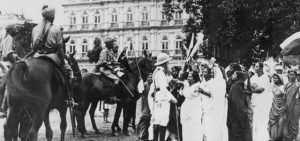 stressed, “Colonialism denies human rights to people it has subjugated by violence, and whom it keeps in poverty and ignorance by force.” Under British rule India bore the brunt of colonialism, it history was orientalised; its culture and people was to exoticize, their basic human rights were taken away, poverty and violence have become the rule of the day. Approximately thirty-five million Indians died because of acts of commission and omission by the British in famines, epidemics, communal riots and wholesale slaughter (Tharoor, 2016). British raj created a power structure in India that not only dominated at political and socio-economic level, but also, knowledge produced by British power intellectuals (historian, civil servant, anthropologist) through the frameworks of orientalism subjugated, distorted and humiliated Indian’ intellectuals, its masses, their history, sciences and literature (Said, 1979). Orient has helped defined Europe so that Western rule can be justified to the uncivilised Indian (Ibid).
stressed, “Colonialism denies human rights to people it has subjugated by violence, and whom it keeps in poverty and ignorance by force.” Under British rule India bore the brunt of colonialism, it history was orientalised; its culture and people was to exoticize, their basic human rights were taken away, poverty and violence have become the rule of the day. Approximately thirty-five million Indians died because of acts of commission and omission by the British in famines, epidemics, communal riots and wholesale slaughter (Tharoor, 2016). British raj created a power structure in India that not only dominated at political and socio-economic level, but also, knowledge produced by British power intellectuals (historian, civil servant, anthropologist) through the frameworks of orientalism subjugated, distorted and humiliated Indian’ intellectuals, its masses, their history, sciences and literature (Said, 1979). Orient has helped defined Europe so that Western rule can be justified to the uncivilised Indian (Ibid).
Under the British colonialism institutional racism has become norm to subjugate Indian’s body and minds- so they do not dare to challenge British rule. Relationship between British and Indians were hierarchical and charged with racial arrogance. Negative characteristics were related to Indians indiscriminately point to the unequal and racialized [sic] character of the relationship (Banerjee 2010). It is to note racism, when structured in the State functionaries becomes a system of oppression which divide between European and non-European. Not only this system constantly reproduces race and racial categories, but also colonialize and racialize the colonized (Hesse, Barnor & Sayyid, 2006) as occurred in colonial India.
Moreover, race was also a pretext to colonize savage Indian who were considered not modern by the British. The concept of modernity is built upon a set of indicators of superiority/inferiority on the human line (Grosfoguel, 2012) that helped sustained the ideological foundation of British colonially empire in India. The concept of coloniality leads to formal and informal manners of ‘racial rule’ (Goldberg, 2002) that are regularly maintained by administrative forms which reproduced structural racism.
In fact, colonial difference has created a mode of being human in the history of species on the basis of what Quijano identifies as the “coloniality of power,” Mignolo as the “colonial difference,” and Winant as a “racial longue durée- which finally resulted in enslavement of African, Latin American conquest, and Asian subjugation (Wynter, 2003).
However, on one the one hand, some have viewed Britain’s Imperial hold over India as a case of simple plundering while others such as Lord Curzon considered it as enlightened despotism for benefit of the governed. Nevertheless, British did introduce modern education, justice, polices, transportation, bureaucracy system, nevertheless, it was meant to exploit India and Indians from its resources and serve the British Empire. Tharoor (2017) has argued that so called ‘imperial ‘gift’, from the railways to the rule of law, were served only Britain’s interests.
Due to continued humiliation, disgrace, and exploitation of economic resources Indian rage manifested against the British Empire on different times on various places in the country in form of different rebellion (mutiny of 1857), revolution (Amritsar massacre of 1919) and non-violence movements. The Indian independence movement included activities to end the East India Company rule (1757–1857) and the British Indian Empire (1857–1947) in the Indian subcontinent. Indian struggle for Independence mobilised under Indian National Congress (hereafter INC) under the leadership (1915–1947) of Mohandas Karamchand Gandhi (hereafter Gandhi) who was barrister in South Africa and fighting against racial discrimination in South Africa (1893–1914). Gandhi mobilised Indian masses carried out major nationalist movements, such as the Non-Cooperation Movement (1920-22), Civil Disobedience (1930), 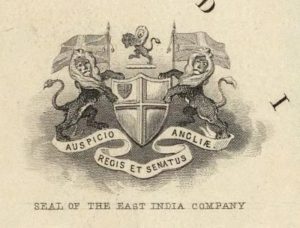 Salt Satyagraha, and the Quit India Movement (1942).
Salt Satyagraha, and the Quit India Movement (1942).
Gandhi’s policy of nonviolence and civil resistance prevailed over the Indian national movement (hereafter INM) until Indian independence in 1947. However, basic ideology of these movements was anti-colonial but not necessarily invoked language of human rights.
After gaining freedom in 1947, India vehemently supported anti-colonial movements globally and fought against South African apartheid regime where Indians were routinely being discriminated. Due to trade and slave trade, there was a large presence of Indians in Africa (Sadiq, cited in Dube, p.13, 2016). The interest and connections of Indian nationalist leaders in Africa date back to 1890 when Indian National Congress (hereafter INC) opposed deployment of Indian soldiers in Sudan and Ethiopia as they were not fighting for the cause of India.
Under Gandhi and later under Jawaharlal Nehru, INC opposed racist policies of British Government in African countries. Gandhi strategy of mass movement such as non-violence, civil disobedience, non-cooperation movement, boycott of foreign goods (swadeshi) and peaceful agitations became a model for African nationalists; later African leaders in their own struggles for self-determination were inspired by Gandhi (Guha, cited in Dubey, p.16, 2016).
This section has discussed India’s colonial past. Next section will demonstrate India’s response towards colonial powers, racial discrimination and its support to African freedom struggle.
Section II: India’s Diplomatic Role in UNGA in Countering Colonialism and Racial Apartheid
However, promise of self-rule of the Atlantic revolutions (1941) inspired many countries in Africa and Asia leading postcolonial liberation from colonial power. Indian stand on discrimination of Indians in South Africa emerged during the nineteenth century. India supported freedom movements in South Africa. India’s concerted effort drew world attention on racial discrimination (practiced by UN members against its own national) which Rajagopal (2009) has referred as a ‘door-opening moment’ in international human rights field.
India used UN as a diplomatic platform to counter and criticize Western colonial powers challenging their policy of racial discrimination while promoting and supporting agenda of ‘Self-determination.’ Some has 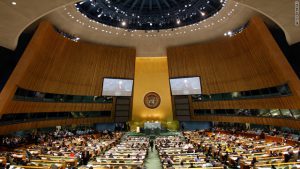 suggested anti-colonialism was a Self-determination movement (Moyn, 2010). Indeed, for Indian politicians and diplomats at that time human rights seemed like a substitute for Self-determination. This was one of the reasons for India’s increased human rights diplomatic activism during 1960-70s in UNGA.
suggested anti-colonialism was a Self-determination movement (Moyn, 2010). Indeed, for Indian politicians and diplomats at that time human rights seemed like a substitute for Self-determination. This was one of the reasons for India’s increased human rights diplomatic activism during 1960-70s in UNGA.
Interestingly during his struggle for Indian independence Gandhi never invoked ‘human rights’ neither Jawahar Lal Nehru, the first prime minister of India. However, Gandhi did support petition in the UN to safeguard Indians living in South Africa under the apartheid rule of British coloniser (Ibid).
United Nation began consideration on racism- prevailing against Indians living in South Africa- on a petition from India in 1946. Chairman of the Indian delegation at the United Nations General Assembly, Mrs. Vijay Lakshmi Pandit invoked principles of UN charter while critiquing racism:
“India firmly believes that imperialism, political, economic or social, in whatever part of the world it may exist and by whomsoever it may be established and perpetuated, is totally inconsistent with the objects and purposes of the United Nations and of its Charter,”
Condemning imperial powers, she has emphasised: “The bitter memories of racial doctrines in the practices of States and Governments are still fresh in the minds of all of us. Their evil and tragic consequence are part of the problem…” (UN Doc. No.17/76, cited in Moolla, 2010)
Remarkably when India highlighted issues of racial discrimination at United Nations General Assembly in 1946 at that time UN was dominated by the colonial powers who quite often created diplomatic difficulties when issues of anti-colonialism bought for discussion as Klose (2010) has observed[5]. In response to Indian petition against racial discrimination in South Africa the General Assembly in Resolution 44 (I) of December 8, 1946, has called for a dialogue between the two member states with a final report to the General Assembly. This was the first time United Nations had seriously reflected over the racial issue.
Simultaneously, Indian leaders such as Gandhi and Nehru has emphasised their support to the countries struggling against colonialism and imperialism particularly to African and Asian (Moolla, 2010). In United Nations India referred, ‘racial discrimination’ as a grave danger to the world peace and supported African resolutions to boycott racist regime of South Africa. This particular Indian UN diplomatic move garnered world attention and criticism on racial discrimination especially against those colonial powers practicing discrimination on racial lines; during those times exposing colonial powers diplomatically was pattern of Indian human rights diplomacy in UNGA (Klose, 2012).
Moolla, (2010) has argued that India’s diplomatic action against racism left deep impact on countries fighting against racial discrimination. In this context India, co-sponsored 1960 Declaration on UN on Granting of Independence to Colonial Countries and Peoples which proclaimed need to unconditionally end colonialism in all its forms and manifestations. However, approval of this declaration made the colonial system is an international crime as Samule Moyn (2012) lamented.
India played prominent part in the formation of a Sub-Committee against Apartheid set up by the General Assembly (Ministry of External Affairs, Government of India). As a leading member of non-aligned movement India supported South Africa’s expulsion from Commonwealth of Nations in 1961; as a member of the Afro-Asian groups at the United Nations supported expulsion and isolation of the Pretoria regime and for the recognition of African movements (Moolla, 2010).
India riding on high wave of international subaltern[6] movement across Asian and African colonies challenged racial discrimination in African countries. India mobilised colonial grievances of colonised African and Asian nations linking their anti-colonial struggles and movements against imperial powers. Through making such linkages with subaltern cosmopolitanism and their agents such as black internationalist intellectuals and political activists (Nehru established close contact with African leaders such as Kwame Nkrumah, Jomo Kenyatta, Dr. Yusuf Dadoo etc.)[7]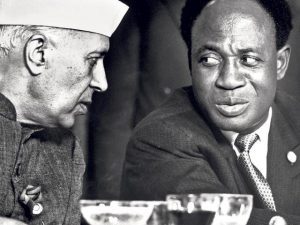
India have made significant political engagements with anti-colonial movements in Africa. Now postcolonial sovereignty linked to subaltern internationalism (Moyn, 2012). India, by decentring the national in internationalism and situating forms of subaltern cosmopolitanism as constitutive of internationalist political activity reconfigured aspects of the spatial constitution of internationalism (Featherstone, 2013).
Throughout the 1950s, as the South African government continued to codify racially exclusionary policies such as the Prohibition of Mixed Marriages Act (1949), the Population Registration Act (1950), and the Group Areas Act (1950). Gradually, India shifted its tactical approach from focusing on the treatment of its nationals to challenging apartheid in terms of human rights supporting all those fighting against racism and colonialism (Tsutui, Whitlinger and Lim, 2012).
By raising racial issue on the political agenda new African and Asian UN member states linked the human rights debate directly to the problem of colonial domination and confirmed their demand for self-determination (Moyn, 2012). Nevertheless, imperial powers such as Britain and France while manipulating UN human rights diplomacy ruthlessly crushed the anti-colonial movements in Kenya, Malaya, Indochina, Indonesia (Klose, 2011). Nonetheless, these human rights violations in colonies has become a major source of embarrassment for colonial power attracting criticism from countries such as India and Africa, as Klose (Ibid) have noted.
India has argued colonialism is against the moral basis of UN charter. However, India’s human rights enthusiasm, as a matter of fact, were about achieving postcolonial sovereignty externally, not enforcing it internally-as later incidences of human rights violations (see Section III) has proved in Independent India, such as, Caste discrimination against Dalits, maltreatment of those fighting for Right to Self-determination in Kashmir, and opposition to UN conference on Racism in 2001. Moyn (2012) rightly asserted that anti-colonialism did not contribute to the substance to human rights rather privileged the anti-totalitarian values; however, anti-colonialism did change power relations; challenged the hegemony of imperial and colonial values of domination.
This section has illustrated India’s human rights diplomatic move against colonial powers in UNGA and its support to anti-racism in South Africa. Next section will highlight anomaly of Indian double standard towards the application of human rights within its jurisdiction.
Section III: India’s Response towards Human Rights Issue Within its Jurisdictions
Last section has demonstrated how colonial experience has guided India’s perspective on human rights regime. India’s insistence on absolute Sovereignty and policy of non-interference[8] originated under the British Empire continued more or less until now seem big hindrance for enforcement of human rights. Since 1990s, India continued to view international human rights regime with suspicion, and avoided action which weaken state sovereignty. Its poor human rights record especially human rights violations by Indian security forces while combating insurgents fighting for secession, discrimination against Dalits and religious minorities, and its fear of abetting Western intervention – are some factors which limits India’s participation in human rights discourse.
India which once was staunchly protested against racial discrimination in UNGA, ironically, left no stone unturned to prevent reference to Caste-based discrimination[9] out of the United Nations conference on racism held in Durban, South Africa in 2001 (also known as World Conference against Racism, WCAR). India opposed any move to internationalise issue of Cathe ste system and asserted Caste is purely a domestic matter and international community must not interfere in it.
For India Caste is different from race thus related discrimination (originated from Caste) does not comes under purview of related UN conventions and covenants (Pinto, 2001). Nevertheless, non-governmental organizations committee together with the Asia-Pacific committee officially endorse view that issue of caste discrimination against Dalits is a serious human rights violation thus needs to be addressed in WCAR. For millions of lower class Hindus also known as Dalits- social and structural discrimination and rampant violence- is a harsh reality in India.
In addition, India has been harsh while dealing with issue of ‘secession’, particularly against Kashmiri separatist. Struggle for Kashmir independence have been suppressed by force; current religious nationalist Indian government had adopted hard military stand towards secessionist political groups in Kashmir narrowing the path for constructive dialogue between the secessionist and government (The Oslo Times, 2016). For India, Right to Self-determination[10] does not apply to Kashmiri secessionist which is clear case of India’s double standard on human rights.
Almost, similar situation- if not worse as Kashmir-prevails in the Northeast part (Assam, Manipur, Meghalaya, Nagaland) of India where since 1947 sustained separatist insurgencies is going on and harsh government response have caused serious human rights violations (Bhaumik, 2007). In such disturbed areas most notorious is, Armed Forces (Special Powers) Acts (AFSPA) under which military can search and detain anyone without any court order[11]. This act has been source of huge human rights violations in all secessionist areas (Human Rights Watch, 2008).
In addition, India harshly dealt with complex problems of Naxalite movement[12], Caste and communal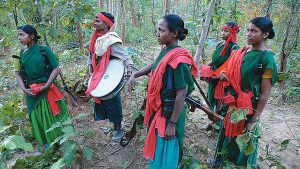 violence which to some extent are rooted in socio-economic deprivation of Dalits, untouchable and Muslim minorities (Mahakul, 2014). Indian response often has resulted in human rights abuses of vulnerable groups of her society since police, judiciary and politics are dominated by the Hindu upper class majority religious group.
violence which to some extent are rooted in socio-economic deprivation of Dalits, untouchable and Muslim minorities (Mahakul, 2014). Indian response often has resulted in human rights abuses of vulnerable groups of her society since police, judiciary and politics are dominated by the Hindu upper class majority religious group.
Interestingly, Indian government hardly pay attention on international condemnation on human rights abuses occurring within its jurisdiction. In spite of many resolutions have been passed in European parliament[13] and United Nations regarding atrocities against Dalits and minorities, ironically, India continue opposing such condemnation. Furthermore, India is against the expansion of jurisdictions of International human rights regime and often on opposite side of the fence on human rights at the U.N. (Rajagopala, 2009). In fact, most of newly independent Third World countries which once resorted to human rights in their struggle toward independence objected to human rights claims as they became repressive regimes (Burke, 2010, p. 371, cited in Tsutui, Whitlinger and Lim, 2012).
Contemporary Indian government’s stance towards human rights is reflected in its tough stand towards its civil society members working on human rights issues in India. Rise of Hindu nationalist Bhartiya Janta Party (BJP) in 2014 has brought immense trouble for human rights activist, human rights defender and to those critical to government policies. The anti-human rights attitude of Narendra Modi government is reflected in cancellation of thousands of NGO licenses and increased restrictions on NGOs, receiving foreign donations (Singh, 2016).
It is to be noted, civil society constitute members mostly from upper class Hindus; they see human rights as a challenge to their power thus they discourage human rights practices. However, those employing language of human rights to seek justice in national and international forums are termed as a ‘traitor’ and ‘unpatriotic’ thus shunned to margins of Indian civil society.
As a matter of fact, in Contemporary India, discourse of human rights being seen with scepticism among stakeholders such as majority of NGOs, nationalist, political leaders, workers and government officials. Use of double standards of human rights by Western power and its intellectuals is also a case in the point. When Bhopal gas tragedy (Lal, 2017) struck in India, there was no hue and cry in West, in words of Peter deDesouza (p.142, 2017), “Why is Western philosophy so schizophrenic, so vocal when in the classroom but so silent when in the colonial streets?”
However, what is more surprising is consequences of colonialism in India which Bhattacharya (cited in deSouza, p.137, 2017) described as the ‘enslavement of minds’, “It produced a feeling of inferiority, an erasure of memory and cultures, a hegemonic perspective from which to view the world”. Thus, in contemporary India, this poses conceptual challenges to the decolonisation of the Indian mind towards a truly emancipatory future as Peter deSouza (2017) has observed. Since Indian political structure and elites, to some extent, support this neo-colonialism, has made this issues more complicated.
Interestingly, understating about human rights is still limited in Indian society. For the majority of people in small cities, human rights refer to civil and political rights. In addition, use of human rights-particularly at the international forums are dominated by elite upper-class Indian who usually do not speak for marginalized and vulnerable groups of Indian society, are less critical to government human rights violations. Thus, NGOs critical to government policy are susceptible to government retaliations in form of income tax harassment, licence cancellations, penalty, arrest.
Conclusion
Historical facts have determined India’s attitude towards colonialism, racial discrimination, relations with Africa and with other third world countries. Guided by its colonial past and inspired by cosmopolitan subaltern values, India staunchly used UNGA for anti-colonial politics to get rid of racial discrimination, particularly in South Africa. Indian diplomates strategically used language of human rights to promote the Right to Self-determination thus in some sense anti-colonial struggle became Self-determination movement. However, had it not been for struggle of anti-colonial movements, Self-determination movement would not have been possible.
Nevertheless, India’s human rights enthusiasm were, in fact, were about achieving postcolonial sovereignty externally, not enforcing it internally as this is apparent in the rampant abuse of human rights violations against Dalits, minorities, secessionist in India as discussed cases has proved. Indian state is against International intervention in its domestic affair thus, quite often India give cold shoulder to international criticism.
However, on positive note, James Griffin (2015) is hopeful that India has no trouble with handling with language of human rights since human rights values are ingrained in the Indian constitution. Some scholars, believes that domestically, human rights situation in India, is most likely to improve due to domestic debate, actions by local NGOs and academia. Nevertheless, condemnation and resolutions passed by European parliament may adversely affect bilateral ties without making any serious contribution to the human rights situation in India (Sachdeva, 2014). Finally, it can be said that there is no consistent policy on human rights, India accordingly to its realpolitik or realist needs employ human rights as it did during 1970s in UNGA.
In contemporary times, what is more intriguing is recolonisation of Indian mind. With the emergence of global capitalism (which driving by Western interest and desire for domination), recolonisation of Indian mind going on; which makes local culture, education and traditions inferior to European culture (p.137, 2017). Ironically, sorry state of the affair is that in India anti-colonial trends within academic and intellectuals are not as strong as in Latin America and Africa. In addition, it seems discourse of human rights is slowly becoming the part of neo-colonialism in India complicit in human rights violations within its jurisdiction.
References
Amnesty International (2015) Shifting Power and Human Rights Diplomacy, India, (eds) Lettinga and Troost, Netherland
Banerjee, S. (2015) Human rights diplomacy and performance of a rising India 2000 in Shifting Power and Human Rights Diplomacy, India, (eds) Lettinga and Troost, Netherland
Banerjee, S. (2010) Blurring boundaries, distant companions: non-kin female caregivers for children in colonial India (nineteenth and twentieth century’s) Paedagogica Historica 46, no. 6, 775-788. Academic Search Complete, EBSCOhost (accessed on March 24, 2011).
Bhaumik, S. (2007) Insurgencies in India’s Northeast: Conflict, Co-option and Change, No. 10, July, East-West Centre Washington Working paper, accessed on 12 Dec. 17, available at https://www.wiltonpark.org.uk/wp-content/uploads/india-insurgency-north-east.pdf
DeSouza, P. (2017) The Recolonization of the Indian Mind, Revista Crítica de Ciências Sociais, accessed on 3 Jan. 2018, available on http:// journals.openedition.org/rccs/6809.
Dube, A. (2016) India-Africa relations: Historical Goodwill and a Vision for the Future, (eds) Dube and Biswas, In India and Africa’s Partnership, India Studies in Business and Economics, accessed on 2 Feb.18, available at file:///Users/amitsingh/Downloads/9788132226185-c2%20(1).pdf
Featherstone, D. (2013) Black internationalism, subaltern cosmopolitanism and the spatial politics of anti-fascism. Annals of the Association of American Geographers, 103(6), pp. 1406-1420.
Getting Away with Murder, 50 Years of the Armed Forces (Special Powers) Act, accessed on 12 Dec. 17, available athttps://www.hrw.org/legacy/backgrounder/2008/india0808/
Goldberg, T. (2006) Racial Europeanization, Ethnic and Racial Studies 29, no. 2 : 331–64. https://doi.org/10.1080/01419870500465611
Goodale, M. (2007) Locating Rights, Envisioning Law between the Global and the Local, in Goodale, M. and Merry, S. E. (orgs.), The Practice of Human Rights: Tracking Law Between the Global and the Local, p. 1-27, Cambridge University Press: Cambridge.
Griffin, J. (2015) The Relativity and Ethnocentricity of Human Rights, Edited by Cruft, Liao, and Renzo, In Philosophical foundation of Human Rights, Oxford University Press, Oxford.
Hesse, Barnor & Sayyid, S. (2006) Narrating the Postcolonial Political and the Immigrant Imaginary, in N. Ali, V. S. Kalra and S. Sayyid (eds.), A Postcolonial People: South Asians in Britain. 13-31, Hurst Press, London
India and the Universal Periodic Review (2012) An analysis of the 2008 review and background information, accessed on 10 December, 2017, available at http://www.upr-epu.com/medias/India_UPR.pdf
India and the United Nations, Ministry of External Affairs, Government of India, accessed on 12th December, 2017, available athttp://www.mea.gov.in/india-and-the-united-nations.htm
Jensen, S. (2016) The Making of International Human Rights: the 1960s, Decolonization and the Reconstruction of Global Values. 1-17, Cambridge University Press: New York
Klose, F. (2011) Source of Embarrassment: Human Rights, State of Emergency, and the Wars of Decolonization, Stefan-Ludwig Hoffman (ed.), Human Rights in the Twentieth Century. 237-257, Cambridge University Press: Cambridge:
Lal, N (2017) Bhopal Gas Tragedy Still Haunts India, accessed on 3 Jan. 2018, available at https://thediplomat.com/2017/04/bhopal-gas-tragedy-still-haunts-india/
Mahakul, B. (2014) Political Violence: A Study of Naxal Movement in India, International Journal of Scientific and Research Publications, Volume 4, Issue 11
Mason, B. (2001) Racism conference undermined by division, accessed on 12 Dec. 17, available at http://news.bbc.co.uk/2/hi/1513561.stm
Mohan, R. (2015) India’s changing geopolitics and the New humanitarianism in Shifting Power and Human Rights Diplomacy, India, (eds) Lettinga and Troost, Netherland
Moyn, S. (2010), “Humanity before Human Rights”, The last utopia: human rights in history. Mass.: Belknap Press of Harvard University Press, 11-43, Cambridge,
Moyn, S. (2012), “Imperialism, Self-Determination and the Rise of Human Rights”, in Akira Iriye, Petra Goedde and William I. Hitchcock (eds.), The Human Rights Revolution: An International History.159-200. Oxford University Press: Oxford
Moolla, M. (1976) Significance of the Contribution of India to the Struggle Against Apartheid, United Nations Centre against Apartheid, New York
National Human Rights Commission report, accessed on 14 December 2017, available at http://nhrc.nic.in/
Panchsheel, published by Ministry of External Affairs, India, accessed on 13 December, 17, available at http://www.mea.gov.in/Uploads/PublicationDocs/191_panchsheel.pdf
Pinto, E. (2001) UN Conference against Racism: Is Caste Race? Economic and Political Weekly, Vol. 36, No. 30, pp. 2817-2820, accessed on 15 December, 2017, available at http://www.jstor.org/stable/4410910?seq=1#page_scan_tab_contents
Sachdeva, G. (2015) India and the European Union- Human rights challenges in Shifting Power and Human Rights Diplomacy, India, (eds) Lettinga and Troost, Netherland
Said, E. (1978) Orientalism, published by Pantheon Books, New York
Singh, A. (2016) India: Kashmir needs a healing touch, accessed on 12 Dec. 17, available at http://www.theoslotimes.com/article/india%3Akashmir-needs-a-healing-touch
Tsutsui, Whitlinger, & Lim. (2012) International Human Rights Law and Social Movements: States’ Resistance and Civil Society’s Insistence, Annu. Rev. Law Soc. Sci. 2012. 8:367–96
Tharoor, S. (2016) An Era of Darkness: The British Empire in India, Rupa and Co, New Delhi
Tharoor, S. (2017) Inglorious Empire: What British did to India, Hurst and Company, London
Wynter, S. (2003) Unsettling the Coloniality of Being/Power/Truth/Freedom: Towards the Human, After Man, Its Overrepresentation- An Argument, CR: The New Centennial Review 3.3, 257-337
©Amit Singh
Photos from the Internet
#Apartheid #India #SouthAfrica #Racism #HumanRights #CoverStory #DifferentTruths

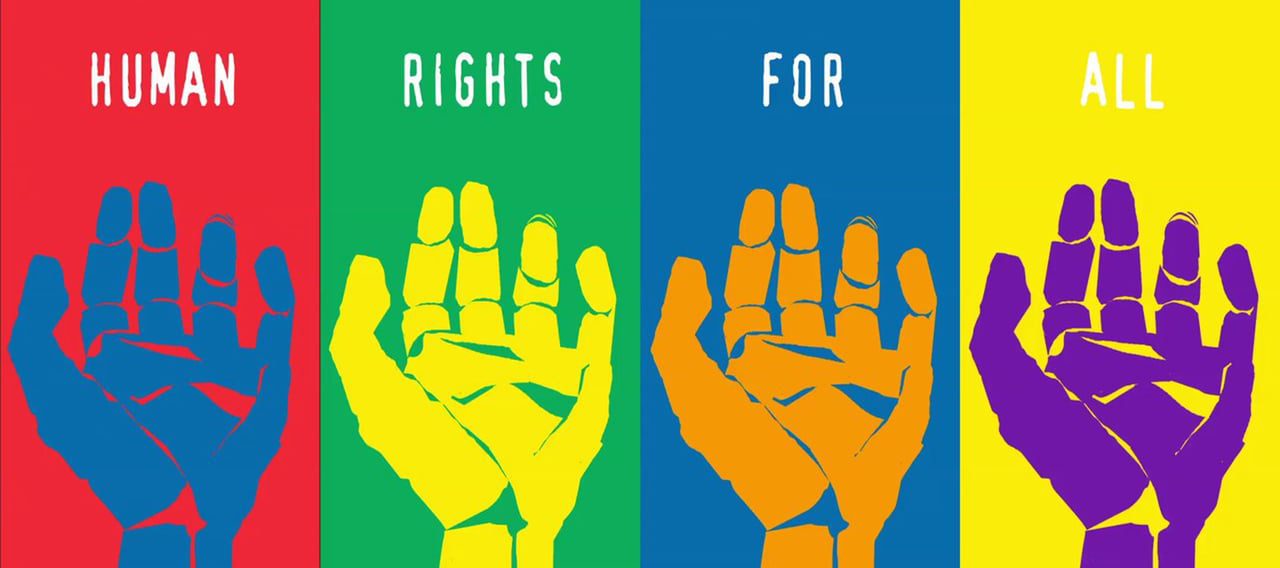


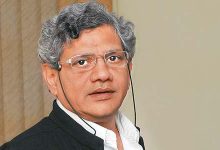

 By
By

 By
By
 By
By